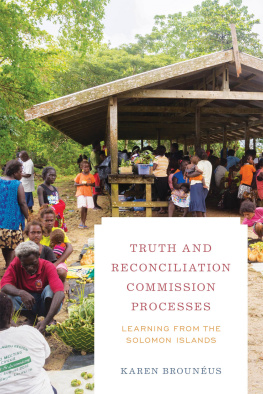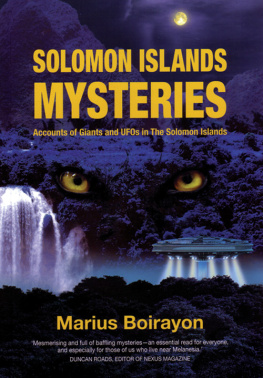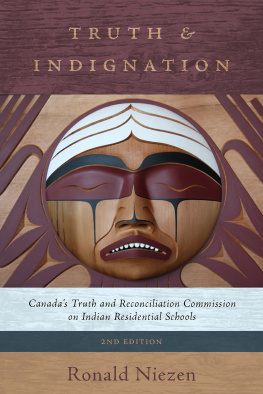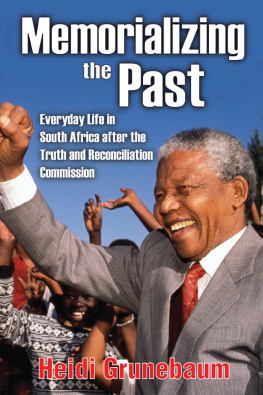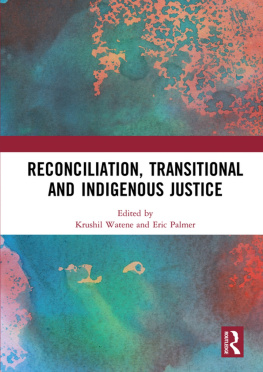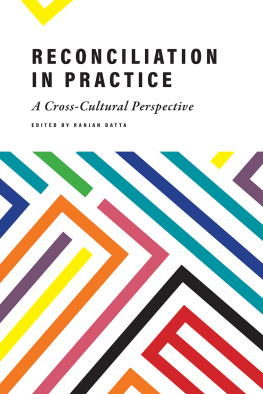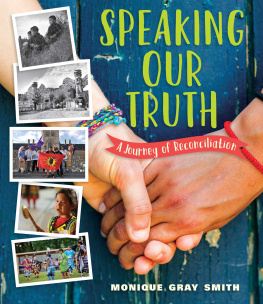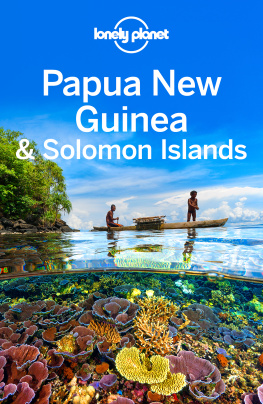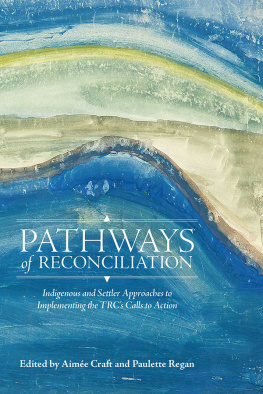Karen Brounéus - Truth and Reconciliation Commission Processes: Learning From the Solomon Islands
Here you can read online Karen Brounéus - Truth and Reconciliation Commission Processes: Learning From the Solomon Islands full text of the book (entire story) in english for free. Download pdf and epub, get meaning, cover and reviews about this ebook. year: 2021, publisher: Rowman & Littlefield Publishers, genre: Politics. Description of the work, (preface) as well as reviews are available. Best literature library LitArk.com created for fans of good reading and offers a wide selection of genres:
Romance novel
Science fiction
Adventure
Detective
Science
History
Home and family
Prose
Art
Politics
Computer
Non-fiction
Religion
Business
Children
Humor
Choose a favorite category and find really read worthwhile books. Enjoy immersion in the world of imagination, feel the emotions of the characters or learn something new for yourself, make an fascinating discovery.
- Book:Truth and Reconciliation Commission Processes: Learning From the Solomon Islands
- Author:
- Publisher:Rowman & Littlefield Publishers
- Genre:
- Year:2021
- Rating:4 / 5
- Favourites:Add to favourites
- Your mark:
- 80
- 1
- 2
- 3
- 4
- 5
Truth and Reconciliation Commission Processes: Learning From the Solomon Islands: summary, description and annotation
We offer to read an annotation, description, summary or preface (depends on what the author of the book "Truth and Reconciliation Commission Processes: Learning From the Solomon Islands" wrote himself). If you haven't found the necessary information about the book — write in the comments, we will try to find it.
Karen Brounéus: author's other books
Who wrote Truth and Reconciliation Commission Processes: Learning From the Solomon Islands? Find out the surname, the name of the author of the book and a list of all author's works by series.
Truth and Reconciliation Commission Processes: Learning From the Solomon Islands — read online for free the complete book (whole text) full work
Below is the text of the book, divided by pages. System saving the place of the last page read, allows you to conveniently read the book "Truth and Reconciliation Commission Processes: Learning From the Solomon Islands" online for free, without having to search again every time where you left off. Put a bookmark, and you can go to the page where you finished reading at any time.
Font size:
Interval:
Bookmark:
former National Research Director of the South African TRC and visiting professor in the Conflict Resolution Program,
Georgetown University
research professor, director of the Peace Research Institute Oslo
professor of history, University of Otago, Dunedin
Lanham Boulder New York London
A wholly owned subsidiary of The Rowman & Littlefield Publishing Group, Inc.
4501 Forbes Boulevard, Suite 200, Lanham, Maryland 20706
www.rowman.com
 The paper used in this publication meets the minimum requirements of American National Standard for Information SciencesPermanence of Paper for Printed Library Materials, ANSI/NISO Z39.481992.
The paper used in this publication meets the minimum requirements of American National Standard for Information SciencesPermanence of Paper for Printed Library Materials, ANSI/NISO Z39.481992.Farmor, for all of the time we spent together discovering the world through books,
Farfar, for the knowledge that he would come and fetch me come mountain or sea if I needed him.
Font size:
Interval:
Bookmark:
Similar books «Truth and Reconciliation Commission Processes: Learning From the Solomon Islands»
Look at similar books to Truth and Reconciliation Commission Processes: Learning From the Solomon Islands. We have selected literature similar in name and meaning in the hope of providing readers with more options to find new, interesting, not yet read works.
Discussion, reviews of the book Truth and Reconciliation Commission Processes: Learning From the Solomon Islands and just readers' own opinions. Leave your comments, write what you think about the work, its meaning or the main characters. Specify what exactly you liked and what you didn't like, and why you think so.

